Matt McGuire of JV Smith Companies Wins the 2023 National Grower Achievement Award!
Growers have a long history of helping one another — to a point. Growers are competitors, after all, and you want to protect your market share. Matt McGuire, Chief Agricultural Officer at JV Smith Companies, believes being too secretive can ultimately hurt your own business. When growers share things — like which varieties perform better, how new equipment performs, and what expenses are involved in adopting technology — it ultimately helps the entire industry.
JV Smith Companies and McGuire have led the charge on several fronts, from funding and supporting much-needed vegetable industry research to opening its fields to companies and universities alike, who need real-world testing, to rally fellow growers to a common cause.
American Vegetable Grower is proud to name JV Smith Companies and McGuire its 2023 Grower Achievement Award national winner for both industry leadership and innovation.
Leading the Charge for a New Research Center
The Yuma area has one of the most respected Extension agents in the game, the renowned Entomologist John Palumbo.
“He gives us a lot of information on what pesticides are working,” McGuire says. “He has an area-wide network and trapping program he publishes every week.”
But that level of support was missing for plant pathology, soil health, weed, and technology, he says. That was a problem because fusarium was ravaging lettuce crops. Also, Bragada beetle was decimating cole crops.
Recognizing an opportunity to create just what JV Smith and the rest of area needed, McGuire reached out to JV Smith CEO Vic Smith, who had just learned about a proposed innovative public-private partnership.
“Vic came to me and said, ‘Hey, do you think this is a worthwhile project?” McGuire says. When he said he did think it worthwhile, Vic got to work.
“He’s the politician of the group. He got a couple of other growers to ante up, and they ran with it,” McGuire says.
The Yuma Center for Excellence for Desert Agriculture (YCEDA) is the result.
It’s a unique public-private partnership. Five area growers, including JV Smith Companies, identify issues needing attention. A team of scientists, currently led by Dr. Stephanie Slinski, Interim Executive Director, devise research designed to make an impact on those issues. Arizona Governor Katie Hobbs tapped the previous director, Paul Brierley, to head up the Department of Agriculture in May 2023.
Another uncommon YCEDA feature is how far ranging it is willing to go to find needed expertise.
“They have brought in world class researchers from Florida and Georgia, Arkansas and the U.K.,” McGuire says.
Current projects include studies on managing fusarium in lettuce, identifying race and fungicide resistance of lettuce downy mildew, and assessing water and salt balance in the Lower Colorado River irrigation districts. Funding comes from area growers as well as grants.
Although YCEDA is only nine years old, it has many projects already and has been awarded more than $6 million in grant funds. Several of projects are linked to fusarium — still a serious problem in the area. YCEDA has helped growers already.
“We’re pretty good about saying, ‘Yeah, that’s a good direction. Or no, that’s no good.’ And we’re focused on not duplicating what other researchers are doing.”
Invite Researchers to the Farm
A lot of growers experiment with new varieties and treatments. But those test fields are still commercial fields. The crops are destined for sale; they just have a bit more paperwork involved.
The fusarium issue helped McGuire see things differently.
“The problem with fusarium research at that time is you need a field that has fusarium, and you know about it and propagate in it. No one wants to do that,” he says.
So they set that field aside for research.
As of today, that 17½ -acre field has hosted all types of research beyond fusarium. It not only has university scientists leasing plots, but also seed breeders and chemical companies.
“We do the tractor work and set it up for people wanting to do research,” McGuire says.
JV Smith Companies charges a nominal fee per acre, at a fraction of the cost of growing expenses. For some of the groups conducting research, a free field would break technical rules. Take seed companies.
“If we just give it for free, then they break the patent,” McGuire says.
He admits the invoicing can be a pain, especially for all the quarter and half acres. But he finds the end results worth the investment.
There’s a true separation between JV Smith and the studies. Other than being able to lay eyes on what McGuire sees, JV Smith is not privy to much of the research being done. One breeder was testing a resistant romaine variety, and he was excited to see how well it was doing. But it ended up being pulled from the variety lineup, likely for important, if unknown, reasons.
University or YCEDA research is a different matter. At the end of each season, YCEDA JV Smith Co. shares a report with the industry on which varieties had the best resistance and performance in the trials against fusarium.
Sharing Technology Intel
McGuire has a somewhat open-book policy when it comes to new technology. He’ll share performance data, the upfront and ongoing costs, expected return on investment, etc.
“People come to us asking about the ins and outs. We offer that pretty freely,” he says.
McGuire’s rising-tides-raises-all-boats attitude goes deeper than just sharing what they learn. He jumps into promising new technology at the ground floor, knowing the tech needs a lot of refining before it solves the problem its designed to address.
When lettuce thinners first hit the market, JV Smith bought a first-generation version and worked closely with the manufacturer on how to improve it. The operation stuck with it for a couple years, taking a pass on the second-generation version, before buying the third generation.
Why?
McGuire and the other leaders at JV Smith are trying to solve issues that don’t have solutions. If no one steps up to the plate to help figure it out, the problem will still be there.
For the lettuce thinners, the goal was to reduce the number of crews in the field, lowering the labor need when labor is hard to get. McGuire’s goal was to use four fewer crews.
Today, years down the road, auto-thinners have improved enough that JV Smith uses eight crews for that task that previously needed 20 crews.
More recent technologies JV Smith is learning and using include drone applicators (in swarms), a laser weeding robot, seed meters, seed treatments, digital record keeping, and a UV light water disinfection system.
JV Smith Co. doesn’t take on every new gadget that comes along, obviously, but the managers “are very motivated to look at different innovations,” McGuire says.
The future of the industry relies on finding workable solutions to challenges everyone faces, from labor to water shortages to keeping fields capable of supporting crops for generations to come.
When a good idea comes along, it’s worth investing in, he says.
“If everyone had the same attitude of, ‘Let’s see how he does and make sure he doesn’t have any problems,’ [the company with a new idea] will go out of business. But the trouble is, the industry has a problem here, now. We will be in the same spot seven years from now without the technology,” McGuire says.
At a Glance: JV Smith Companies
Founded: 1977
Owners: Vic Smith and family
Approximate size: 28,000 vegetables acres, 39,000 total
Crops grown: Broccoli, broccolini, Brussels sprouts, cauliflower, kale, spinach, baby leaf lettuces, artisan lettuces, iceberg lettuce, romaine, green leaf lettuce, carrots, beets, green onions, dry onions, green beans, and garlic
Locations: Yuma County, AZ; Imperial County, CA, Monterey County, CA; San Luis Valley, CO; Morelos, Baja, Mexico
Customers: Shippers, processors, and distributors





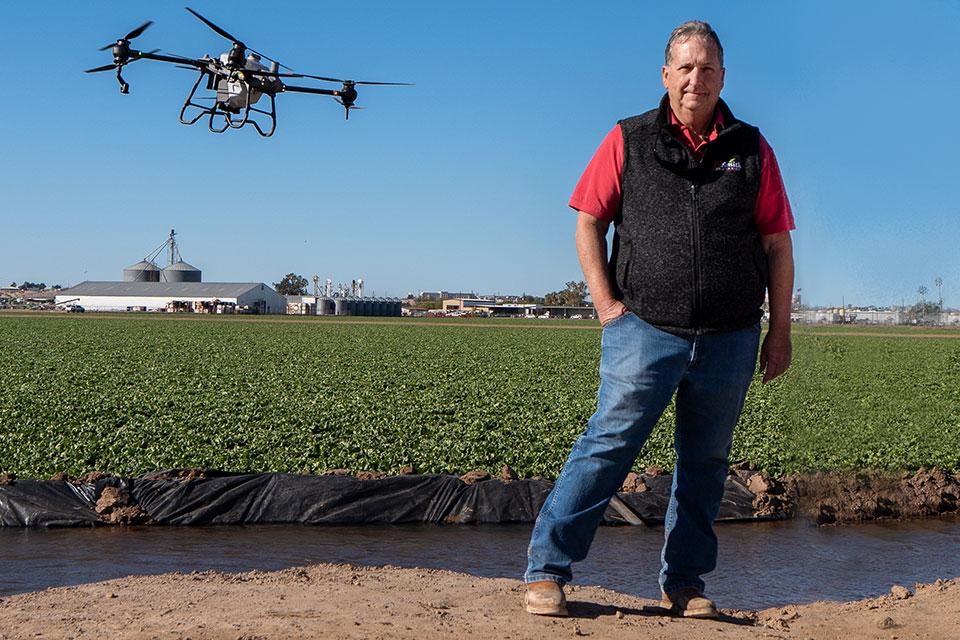
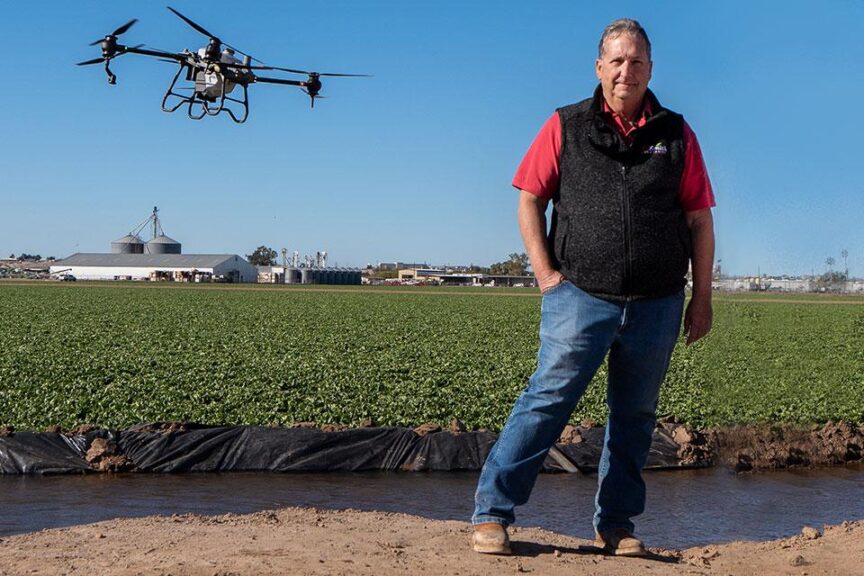
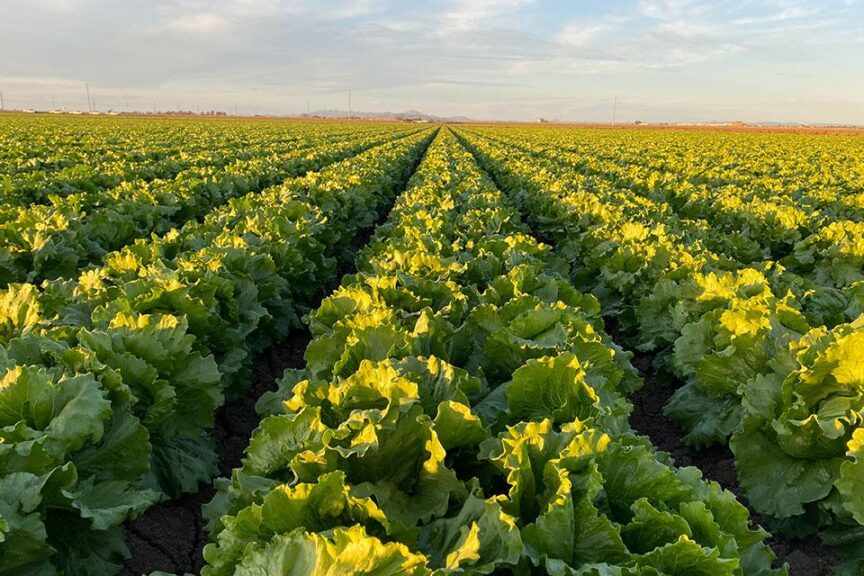
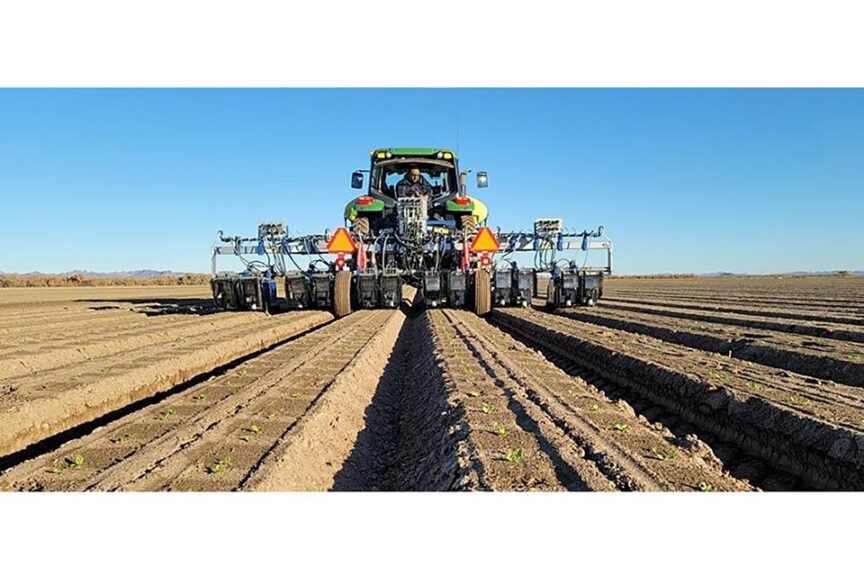
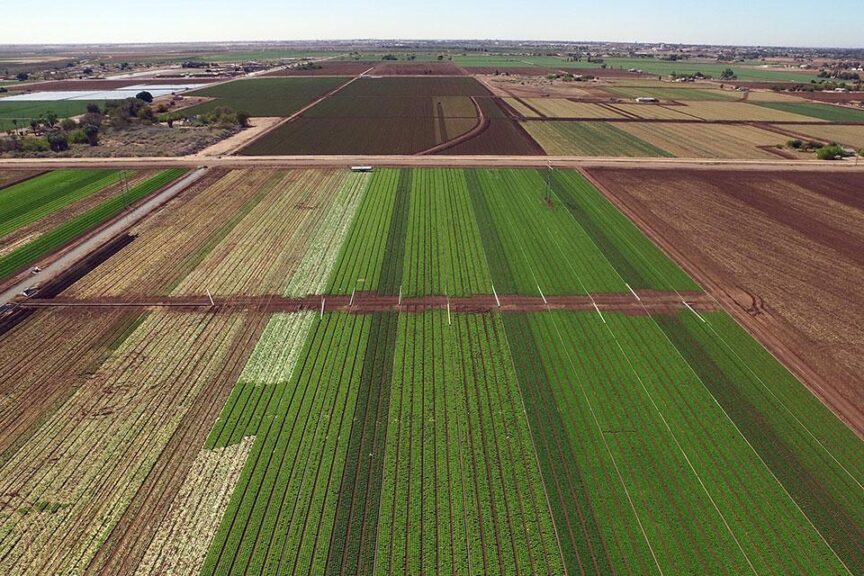
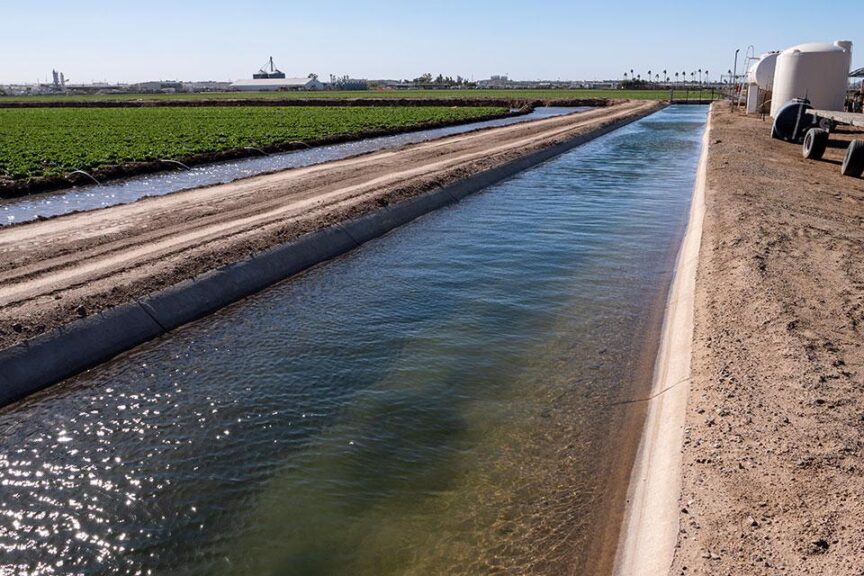
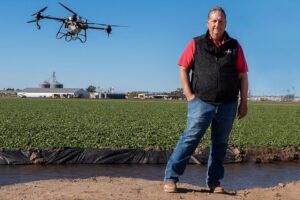
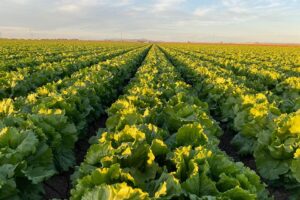
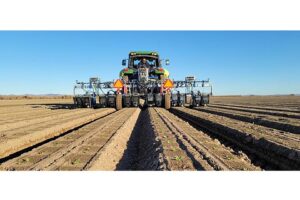
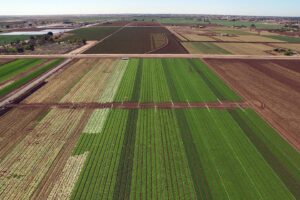
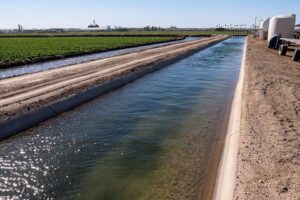
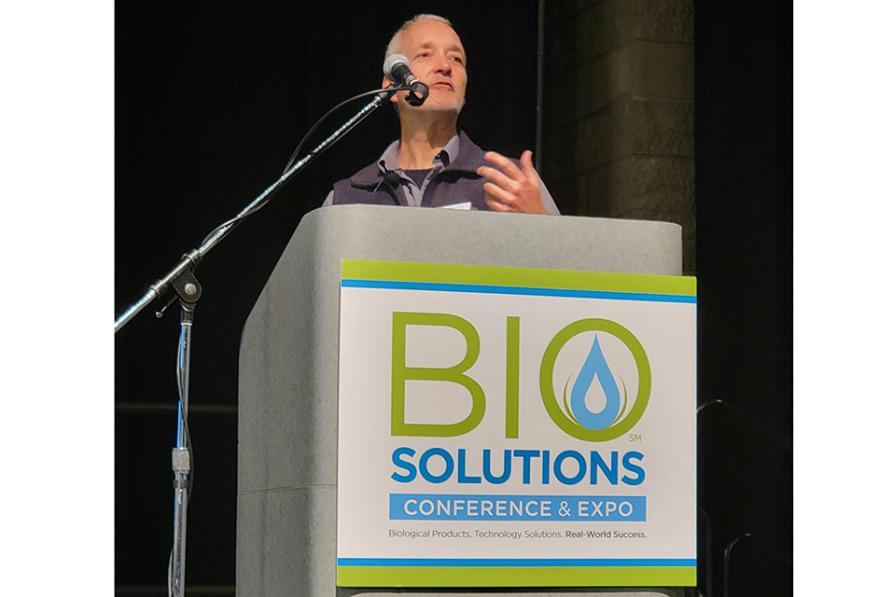




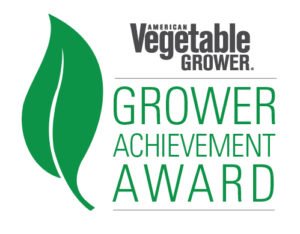

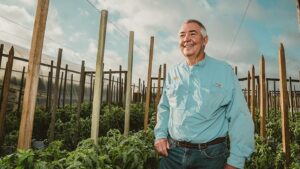
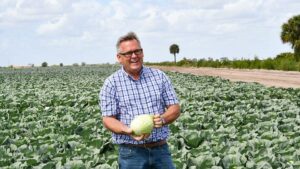
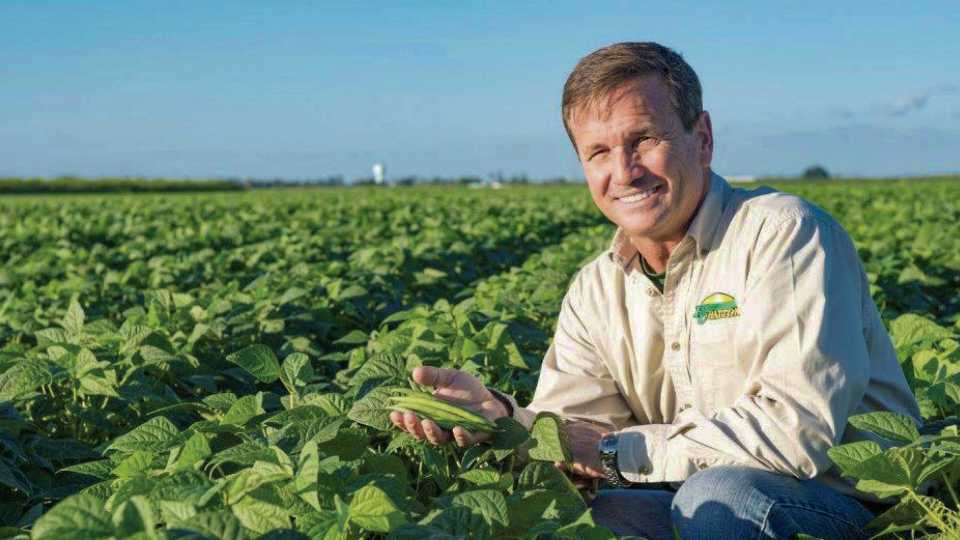
![View Highlights From The 2014 United Fresh Washington Public Policy Conference [slideshow]](https://www.growingproduce.com/wp-content/uploads/2014/09/watermelon-queens-for-web-300x169.jpg)